
What we need now is to unite our efforts to put Israel before the International Criminal Court. It is our duty to condemn war crimes in order to give the Palestinians the same opportunity to achieve justice as the Allies did at Nuremberg after the Second World War. (Photo: MEMO)
Latin America’s cry for Palestine
by Eduardo Bishara Barakat
Over the past few weeks, more than 2,000 Palestinians have been killed in Gaza, including 450 children; 10,000 others were wounded, most of them innocent civilians who will suffer from varying disabilities for the rest of their lives.
In the 21st century, we have witnessed attacks on schools, shelters, humanitarian relief buildings and offices, hospitals, civilian neighbourhoods and power plants. The Palestinians had nowhere to hide from the bombs falling on them and their homes.
Also Read: Be Careful of the Trap of Deploying Peacekeeping Forces to Gaza
This massacre bears a name chosen carefully by Israel: “Operation Protective Edge”; two previous operations were called “Cast Lead” and “Pillar of Cloud”. These euphemisms no longer fool anyone, as in the midst of the rage that swept across social networking sites, we saw injustice prevailing in the area in real time and the blood of the innocents flooded across thousands of kilometres, drowning the world in shame and pain.
The idea for this ethnic cleansing operation, which has origins in the Torah, has been brewing for nearly a century, protected from those who could put an end to it; now was the time to break the silence.
Spoils
The tragedy began even before the Balfour Declaration of 1917, but by means of this major example of diplomatic ambiguity the British government laid the foundations for the creation of a Jewish state in Palestine. Although there was only one letter between Britain’s foreign secretary, Arthur Balfour, and Zionist leader Lord Rothschild, the League of Nations Mandate over Palestine allocated to Britain became involved in the matter. Intellectual Arthur Koestler described this conspiracy in his book Promise and Fulfilment: Palestine thus: “One nation solemnly promised to a second nation the country of a third.”
By 1920, nearly half a million Jews had arrived in Palestine from various countries. There was a plan behind this sudden flow of immigrants, but communication was not as efficient as it is today. The world was still trying to recover from the wounds of World War One and trying to adapt to major geopolitical shifts. Two years later, the draft of the British Mandate was confirmed formally by the Council of the League of Nations.
Also Read: The Forty-Four-Days of Glory: Azerbaijan’s Struggle for Justice and Peace
With the rise of Germany’s Nazis, world sympathy was with European Jewry, so much so that post-World War Two, in 1947, the nascent United Nations passed a resolution, number 181, to partition Palestine into a Jewish state and a Palestinian state. The Palestinians were not consulted on this move, which suggested an official denial of the existence of the indigenous population; they were allocated the desert and mountainous areas of their own land, leaving the fertile land for the new state of Israel.
Today, Israel has still not even declared its borders as set by UN resolution 181. With a powerful lobby in capitals around the world, national governments are cowed into remaining silent in the face of continued Israeli expansion and expropriation of Palestinian land and property. The persecution and extermination of the Palestinians has been allowed to continue virtually unchecked for decades.
The Palestinian resistance groups have fought for the right to self-determination for their people under very difficult conditions and while besieged by Israel. The Zionist state also restricts the movement of people in the territories it occupies. In addition, Israel is racist in its dealings with its own citizens who are of Palestinian descent, using discriminatory laws to practice an apartheid-style system.
The emergence of Hamas and the other factions is the natural result of Israel’s brutal occupation and oppression. What the Israeli government and its supporters call terrorism is legitimate resistance but that message is lost in the face of a pro-Israel mainstream media.
Also Read: Palestine Solidarity Month: A Collective Movement for Al-Aqsa and Palestine’s Freedom
Latin America and Palestine
Latin America has shown great solidarity with the Palestinians and almost all of the region’s governments have taken measures and facilitated demonstrations for peace and protest against Israel.
Jose Mujica of Uruguay described the situation as “genocide”, while Evo Morales renounced visa exemption for Israelis entering Bolivia, which considers them as coming from a terrorist state. Chile, Peru, Brazil, Ecuador and El Salvador have all recalled their ambassadors from the occupied Palestinian territories for consultations regarding the situation.
In addition to this, the countries that make up the Common Market of South America (Mercosur), including Argentina, called for an immediate cease-fire in the Gaza Strip [now in place], while Colombia has allocated money for the Palestinian victims. Meanwhile, Nicolas Maduro announced his intention to send aid to Gaza, as well as build a shelter to welcome refugees in Venezuela.
Fidel Castro insisted that what has happened is a “new, repugnant form of fascism” and signed the international statement titled “In Defence of Palestine”, which has also signed by various prominent figures such as Adolfo Esquivel and Eduardo Galeano, among others.
Also Read: Hassan al-Turabi: A Controversial Thinker from Sudan
An abetting silence
Some governments have issued tepid calls for peace, but this is not enough. What is needed is a strong and continuous trial of the alleged war criminals that does not overlook the details regarding the blatant, degrading and brutal genocide against the Palestinian people. As for those who have not condemned Israel’s policy of destruction, humiliation and killing of civilians, they may well be aiding and abetting war crimes.
A good example for others to follow is that set by Britain’s Baroness Sayeeda Warsi, a former Senior Minister of State for Foreign and Commonwealth Affairs, who resigned from her position because she “can no longer support the British government’s policy on the Israeli aggression on Gaza”.
What we need now is to unite our efforts to put Israel before the International Criminal Court. It is our duty to condemn war crimes in order to give the Palestinians the same opportunity to achieve justice as the Allies did at Nuremberg after the Second World War. We must stand by those who have been in need of justice and solidarity for decades. It does not matter how powerful Israel’s weapons are or how influential its propaganda machine is; the world has united in the demand for justice for the people of Palestine. (T/MEMO/EBB/P3)
Mi’raj Islamic News Agency (MINA)
Also Read: Who Exactly is the RSF Group Shaking Sudan?
Translated from Al Jazeera net, August 26, 2014
Source: https://www.middleeastmonitor.com/blogs/politics/13767-latin-americas-cry-for-palestine
Also Read: The Two-State Solution (Palestine–Israel) in Historical Perspective





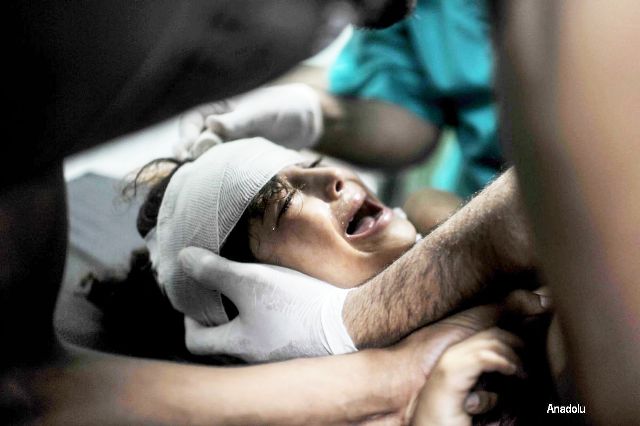








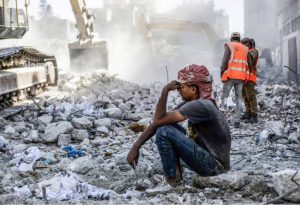

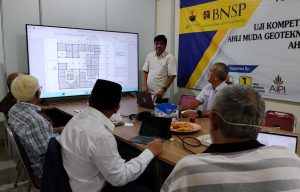
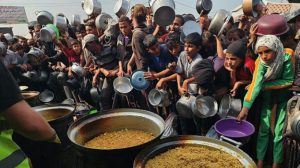
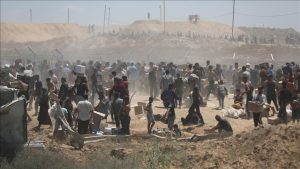














 Mina Indonesia
Mina Indonesia Mina Arabic
Mina Arabic